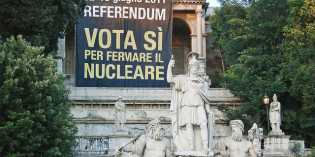Tag: Europp

Why the UK’s pre-election polls got it so wrong: is it time to take probability sampling seriously?
One of the key stories of the UK’s general election was the extent to which pre-election polling understated the true level of Conservative support in the electorate. Oliver Heath writes that while many of the lessons have been learned from the last major polling debacle in the UK in 1992, it may be time to take […]

Why political context is key in determining the parties interest groups choose to collaborate with
When interest groups choose to collaborate with political parties what determines the type of party they opt to work with? Anne Rasmussen and Simon Otjes write that the two key elements shaping this decision are typically the ideological similarities between the interest group and the party, together with how powerful the party is in terms of […]

Why participatory governance offers a realistic route to addressing the EU’s legitimacy crisis
How can EU decision-making be brought closer to Europe’s citizens? Based on a case study of the ‘REACH’ regulation governing the production and use of chemical substances, Karl-Oskar Lindgren writes on the potential for a participatory governance approach to increase the EU’s legitimacy by enhancing the capacity for stakeholders and civil society actors to play […]

Lower education levels goes hand in hand with support for direct democracy
What role does education play in the type of political system that citizens would like to see implemented in their country? Hilde Coffé presents results from a study, in collaboration with Ank Michels, using survey data in the Netherlands. The research shows that while all education groups have similar levels of support for representative democracy, […]

The impact of the mass media on the quality of democracy within a state remains a much overlooked area of study
Media organisations are generally assumed to play an important role in democracies, but how effective are they in performing this function within specific states? Lisa Müller outlines results from an analysis of 47 countries, based on a framework which rates two separate aspects of media performance: the extent to which they perform a ‘watchdog’ role by […]

Europe is witnessing the establishment of a new regional order, built on territories such as Scotland, Catalonia and the Basque Country
This year has seen an independence referendum in Scotland, a contested debate over a proposed independence consultation in Catalonia and growing momentum behind independence movements elsewhere in Europe. Igor Calzada writes that the debates taking place within countries like Spain and the UK offer an example of what he terms ‘post-independence’. He argues that political […]

Europe is entering the ‘age of the referendum’, but there is nothing to fear for European democracy if referendums are properly regulated
Referendums have become increasingly common occurrences in European states in recent decades. Stephen Tierney writes on some of the potential benefits and dangers of using referendums to solve key constitutional questions. He writes that while referendums can undermine democracy if used incorrectly, they generally suffer from problems of practice rather than principle and these problems […]

The EU has successfully pursued a strategy of democracy promotion by technocratic means in Belarus
Belarus is often depicted as the ‘last dictatorship in Europe’ and is generally regarded as being more strongly oriented toward Russia rather than the EU and the West. Using extensive research in the country conducted between 2009 and 2013, Elena A. Korosteleva highlights that while on the outside it appears to be ‘business as usual’ in Belarus, the […]

The decision of the majority of Scots to vote ‘No’ may result in even more radical constitutional change to the UK
Scotland voted No to independence on 18 September. Eve Hepburn writes that the referendum has opened up a Pandora’s Box of territorial identities, politics and interests in the UK. She asks whether the pro-UK parties really believe that it will be possible to initiate and conclusively finalise a proper, thoughtful, and consultative process of radical constitutional change […]



 Democratic Audit's core funding is provided by the Joseph Rowntree Charitable Trust. Additional funding is provided by the London School of Economics.
Democratic Audit's core funding is provided by the Joseph Rowntree Charitable Trust. Additional funding is provided by the London School of Economics.